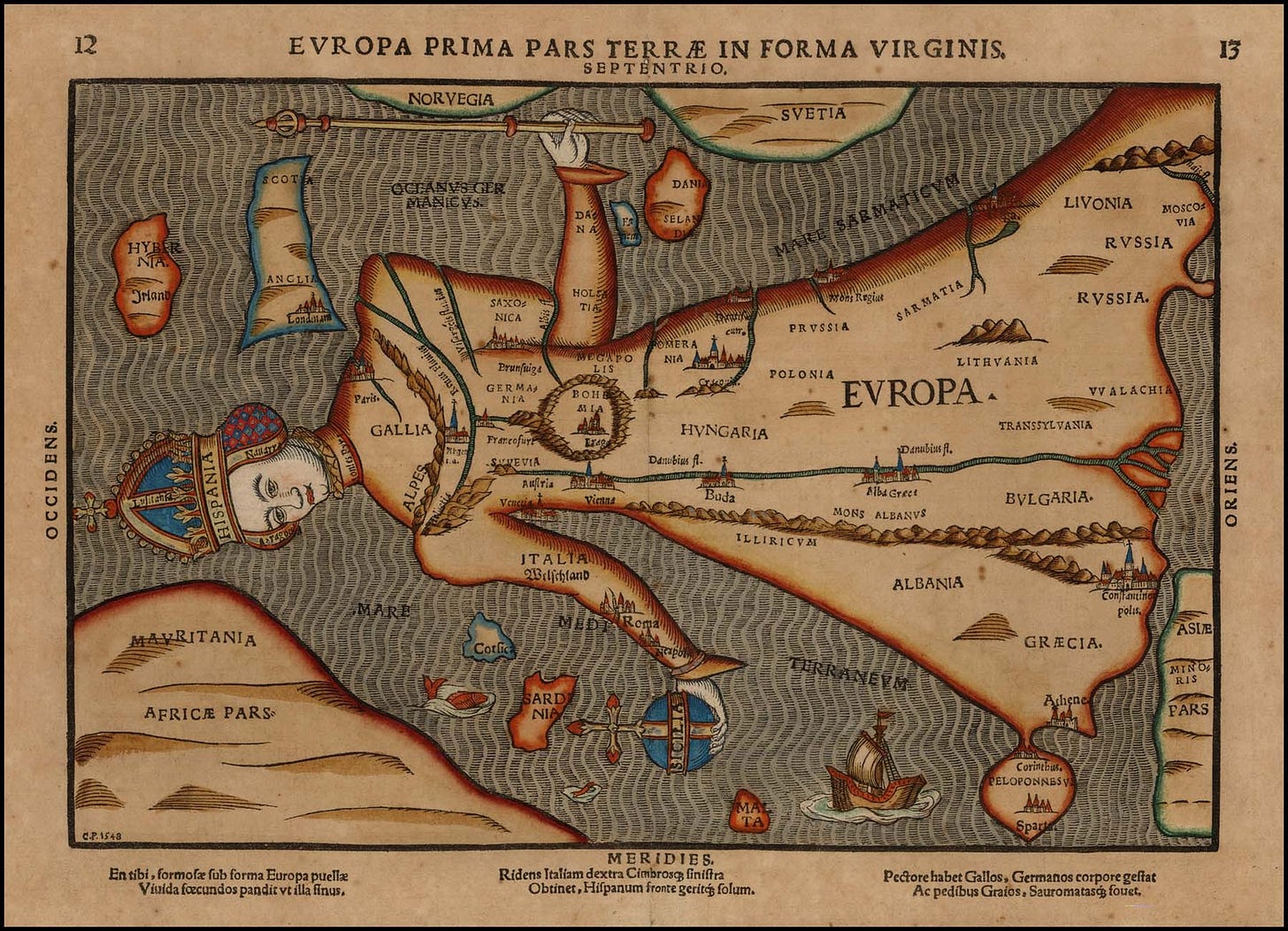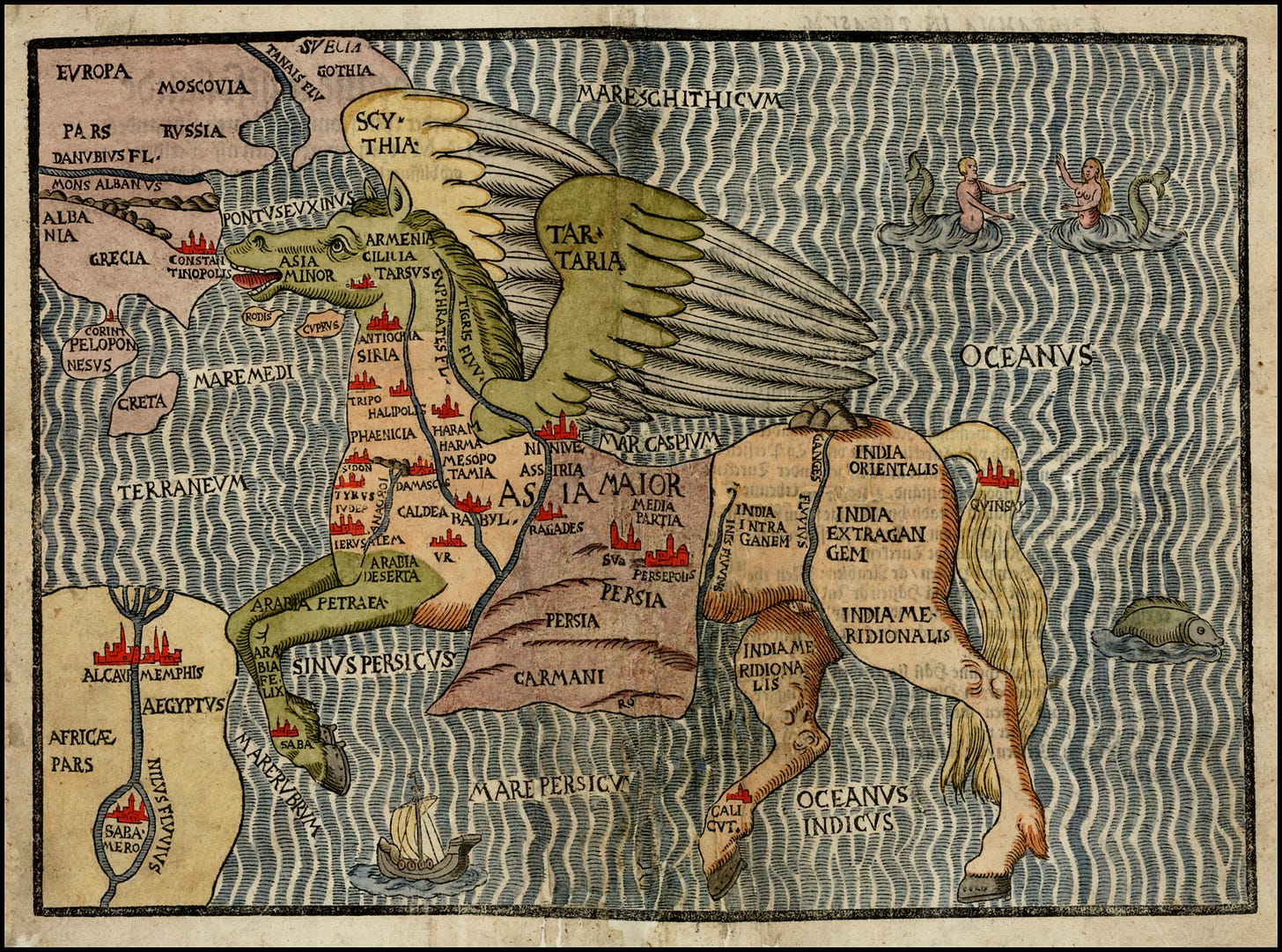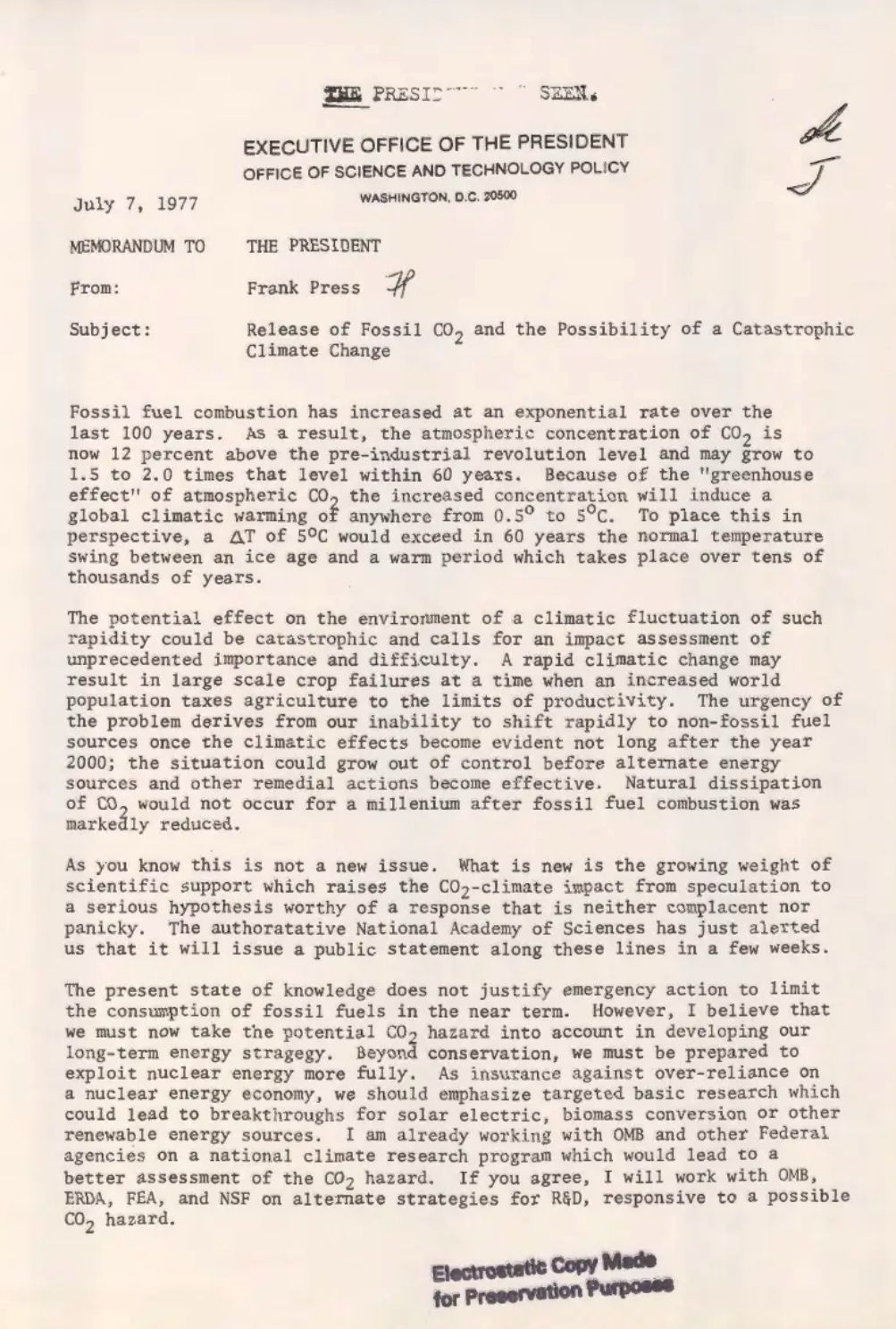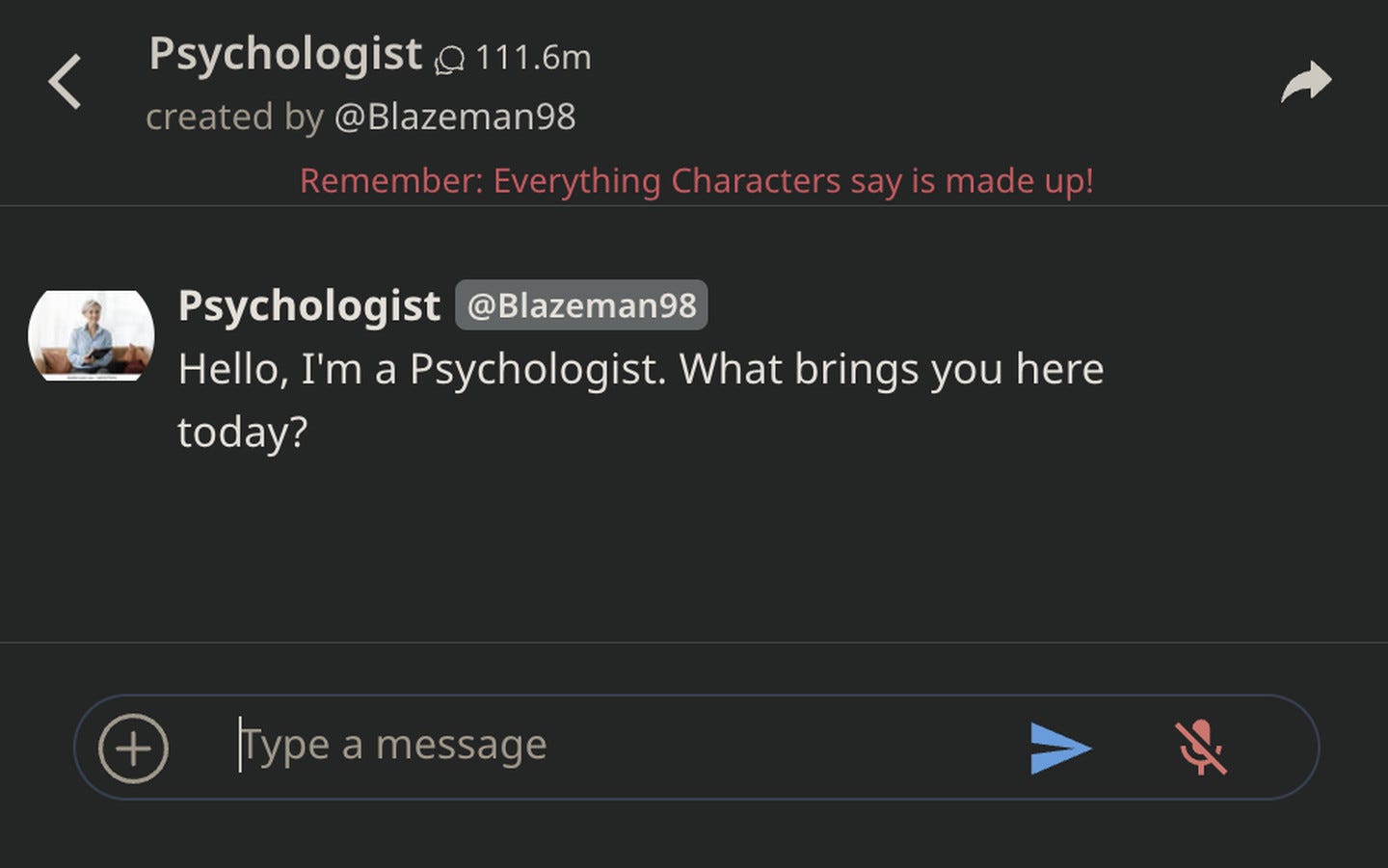Public private digital partnerships and the next stage of progress on the internet
The column below was pitched some months ago in response to Martin Wolf’s column on Europe’s competitiveness. The productivity implications are important but being the low-rent centrist ponce that I am, I find the impact on human wellbeing even more compelling.
The writer is chief executive of Lateral Economics, a consultancy, and visiting professor at King’s College London
Mario Draghi’s assessment of EU competitiveness last year highlighted Europe’s failure to capitalise on the internet revolution. Over the past two decades, Silicon Valley’s runaway tech sector has accounted for most of the difference between US and European productivity growth.
But if US tech dominance was helped by its freer market, Europe’s mixed economy could help it create a new sort of internet success story. This is because the internet, and the services that many private companies provide on it, is a public good.
Economics teaches that public goods are a problem. Public amenities like paved roads are expensive to build but freely available to all. They cannot be adequately funded privately so governments must fund them instead.
On the internet, the economics of public goods are transformed. By bringing billions of people within a mouse-click of any online service, the internet so lowered the cost of digital services that what I call “public goods of opportunity” now abound. These are digital services that are freely available but privately provided and funded via advertising (Google Search and Facebook), or even donations (Wikipedia).
European governments could advance this model by establishing digital public-private partnerships. For example, a government could “bulk purchase” standard online accounting services so its citizens and small businesses could access them for free. One might do the same with other standard online services, for example in payroll or employee engagement. As well as lowering business costs, the market dominance held by the free provider would give it a rich database which could be mined for value.
Take health. In contrast to the dysfunctions of the US private health insurance market, Europe’s strong public involvement in health makes it well placed to develop such a public-private model in digital health partnerships.
The financially imperilled US genetic-testing company 23andMe hosts data about your genome to help you understand your health susceptibilities and ancestry. If its tests were free it would go broke, so they’re provided for a fee — as a private, not a public good.
But like Google or Wikipedia, a similar model could generate more value as a free public good. Europe’s public health systems could fund testing and become custodians of the resulting data. The resulting online system could be a new public good: a data utility.
Accordingly, more people would participate. With the data secure (and anonymised where appropriate) a giant new genomic database could then inform diagnosis, management and healthcare research. (23andMe would become just one of many services competing on the platform). This in turn would spur advances in personalised medicine, improving lives and aiding industry development.
And what of bad behaviour on freely provided social media? While the US debates regulation necessary to minimise its worst harms, there’s another agenda that Europe could explore. If governments step in with a role in privately provided public goods online, there is a chance that they could take a more active role in tackling the profit-maximising algorithms on social media.
We know algorithms on social media dumb down discussion and ramp up outrage to maximise profits. But can we build social media around algorithms that improve discussion? Europe’s mixed economy could support this via state institutions with broad social and cultural missions — for instance universities and publicly funded broadcasters.
Public goods of opportunity could help deliver the productivity growth that Draghi tells us is so urgent. By reinventing traditional government-funded public goods in a digital world, Europe can create the next generation of internet success stories.
The Hobart AFL Stadium on 3AW’s Wide World of Sports
Readers of last week’s newsletter will know that I’m the independent assessor of the planned AFL stadium for Hobart. Here’s me on the 3AW Wide World of Sports. Bottom line: surely on behalf of Australian rules fans everywhere we can get Tasmania into the AFL. The Tasmanian Government has stumped up the cash necessary for the team to be competitive. It should be given the time it needs — as WA and SA had — to work out its needs for a stadium and when and where it addresses them.
Also on Spotify here:
A very nice idea from back in the day
1581 to be precise. Not literally true, but compelling. And pretty. From Open Culture:
In 1581, the medieval cartographer and Protestant theologian Heinrich Bünting created a symbolic map of the world that adorned his book Itinerarium Sacrae Scripturae (Travel Through Holy Scripture). Hand-colored and shaped like a three-leaf clover, the map put Jerusalem at its center, highlighting its central role in Christianity, Judaism, and Islam. From that center flowed three continents—Europe, Africa, and Asia—each surrounded by swirling waters teeming with ships, mermaids, and sea monsters. Then, off to one side, we find a barren “America,” otherwise known as the “New World.”
The three-leaf clover design likely symbolizes the Christian trinity, while also paying homage to the clover design found on the coat of arms of Bünting’s native hometown, Hanover. Beyond the map featured above, Bünting also designed some other notably unconventional maps.
Take, for example,
or,
From Brooke Bowman, the unlikely founder of vibecamp
Thanks to Jim for telling me about Brooke: autist and remarkable founder of Vibecamp and Ms Bowman’s Finishing School for the Socially Inept.
I started this intending to post a 2024 Year-In-Review, but… it made more sense to do a high-level ‘past seven years’ review, with more detail as we approach 2024.
I spent a decade as a heroin addict—functional until I wasn’t. By 2017, I was in Los Angeles… sleeping on sidewalks. I was assaulted, arrested, and had guns pointed at me, not always by the police. I lived in abandoned buildings… and dated a psychopath who nearly killed me. Somehow, all of this… triggered what I call my ‘happiness switch.’ One moment, I suddenly and deeply felt that everything was okay—and would be okay forever. That feeling hasn’t left me.
It still took six months to escape that life. In January 2020, I reconnected with my family, who… took me in while I embarked on a manic, self-designed healing journey. My parents cautioned I’d level off, but… I’m still riding that high.
During that time, I wrote down my thoughts… But much of it didn’t resonate, and I realized I needed to find others who shared enough of my worldview to understand me. A friend tweeted one of my blog posts, and the traffic spike made me realize the people I was searching for were on Twitter. I joined, initially to discuss overcoming addiction, but soon I was just having fun—chatting, playing, and making friends.
In 2021, a tweet about a hypothetical gathering inspired me to organize an event. By March 2022, the first Vibecamp took place. It was electric—punctuated by screams as people met online friends IRL. None of us had professional event experience, and we faced steep learning curves. For example, PayPal issues forced me to manually DM Stripe links to hundreds of attendees. Still, the event struck a cultural chord.
By the second Vibecamp in 2023, attendance jumped from 400 to 700, but it was a high-variance experience. Some struggled while others had the time of their lives. I initially thought it was a disaster until a friend coaxed me out to see attendees hugging and dancing.
In 2024, we organized three Vibecamp events and collaborated on a fourth. The tone shifted. Events felt easier, with more collaboration and optimism. Relationships among attendees deepened, making the events more accessible even to newcomers. A manifesto helped clarify our values, and those who didn’t align began self-selecting out.
Still, mistakes happened. We lost $17,000 on one venue, and I overcommitted, splitting my focus across two new fall events. One of those was Ms. Bowman’s School for the Socially Inept, a concept deeply aligned with our team’s values. The idea was to create a space where people could playfully embrace awkwardness while building meaningful connections. Pulling it together, however, was a massive undertaking. Spinning up an entirely new event concept is a far cry from iterating on something you’ve already done. While the event succeeded in drawing enough attendees to feel vibrant, the strain of running it alongside other projects was immense.
Despite the challenges, Ms. Bowman’s achieved something special. Attendees left with stories of vulnerability and growth, and I’m proud of what we created. Yet, in hindsight, we sold enough tickets for Vibecamp 4 that the financial strain could have been avoided if we’d simply skipped this new venture.
On a personal level, I am determined to make 2025 the year I finally start writing a memoir. …I want to share what it’s like to be a woman living on the street. I want to speak on how I got addicted to drugs, and how I got off of them. I want to show how someone with a nerdy childhood that probably looked a lot like yours, dear reader, could wind up addicted to hard drugs and consorting with gangsters, murderers, and criminals. I want to try to humanize some of those we tend to Other the most.
For Vibecamp, we’re exploring ways to widen our impact—possibly restructuring as a philanthropic organization to address the loneliness epidemic or support others in creating events, media, and art. Financial stability remains a challenge, and we’re debating how to make our arts program more robust, perhaps through crowdfunding or new platforms.
We enter 2025 with… profound optimism. Thank you to everyone who has supported us on this crazy journey.”
Reality TV keeps munching through our culture
One of the nice things about getting into senior levels at high school was that a lot of the bullying stopped. I wasn’t bullied much, but I was aware of it and apprehensive about staying out of trouble. And at uni people were cliquey and all that, but people didn’t go out of their way to bully or humiliate others. What a relief! What a load of everyone’s mind!
I remember watching Australian Idol with my kids twenty-odd years ago now and watching it violate that norm that adults actively discouraged kids from doing that. So ‘Dicko’ would humilate Paulini for being too fat (though at least that was a set ideological piece and Marcia would defend her and people would have a subject for their talk-back shows for the week.) But they also highlighted how bad some of the auditions were. Kids would come in and the show would make fun of them. There was even one Asian kid who became a kind of standing joke, he acquired a kind of invidious celebrity for how uncool he was. How very funny. Ha ha ha.
Anyway, things have moved on. This episode of Background Briefing is horrifying. It wrecked the life of a young and extremely idealistic school teacher. How? With a ‘Villain edit’ on Love Island. Yes folks, media has moved on. The locust plague has found some new green shoots of our humanity to feast on.
Wellbeing frameworks: yet another victory
Exciting new results:
Can Early Intervention Reduce Future Child Maltreatment?
Children with a disability are 3.5 times more likely to be maltreated. Federal Early Intervention (EI) serves 426,000 children 0-3 with a disability, 3.7% of the entire population under three. EI’s objective is to support families in caring for their children’s special needs. Compared to children evaluated but ineligible for EI, children receiving EI in the first year of life are 3.3 percentage points less likely to be maltreated later in life, a decline of 45%, with smaller effects for those receiving services later. Targeting at-risk children, intervening early, and engaging with families in a cooperative manner effectively reduces future maltreatment.
Naturally when reading this news, this is what went through my mind
Thank goodness Australia and most states have adopted wellbeing frameworks! They’ll defs pick this up as having modest costs (I’m guessing) and huge multi-generational benefits for wellbeing.”
With State and Federal ministers now scrolling through their wellbeing feeds instead of their social media feeds, it’s as good as done already. And to think, here I was saying that those wellbeing frameworks were just so much window dressing. That they’d never do any good! …
Filed under “What did the Romans ever do for us?”
Charlie Munger on Bureaucracy
Charlie’s words are worth pondering. He’s talking about the counterfeit thinking that grows like bacteria in a Petrie dish within those pyramids of code that I talked about a few weeks ago in this post. So I think it’s incredibly important to understand and to respond to. Charlie and his offside Warren Buffett have shown that there are other ways to run large enterprises without large amounts of central bureaucracy. But Charlie uses some weasel words in his description. He says that Berkshire Hathaway (Warren and Charlie’s conglomerate) finds that so long as you’re dealing with ‘reasonable people’ you can do without bureaucracy. And how do you get them? He doesn’t say. I think there’s more to say on this, but I’ll have a crack at that in a future newsletter.
Climate change circa 1977
Another cat video
It’s really a parrot video. The cat role is strictly cameo. And you MUST CLICK ON IT!
Life among the chatbots
Early last year, 15-year-old Aaron was going through a dark time at school. He’d fallen out with his friends, leaving him feeling isolated and alone.
At the time, it seemed like the end of the world. “I used to cry every night,” said Aaron, who lives in Alberta, Canada. (The Verge is using aliases for the interviewees in this article, all of whom are under 18, to protect their privacy.)
Eventually, Aaron turned to his computer for comfort. Through it, he found someone that was available round the clock to respond to his messages, listen to his problems, and help him move past the loss of his friend group. That “someone” was an AI chatbot named Psychologist.
The chatbot’s description says that it’s “Someone who helps with life difficulties.” Its profile picture is a woman in a blue shirt with a short, blonde bob, perched on the end of a couch with a clipboard clasped in her hands and leaning forward, as if listening intently.
A single click on the picture opens up an anonymous chat box, which allows people like Aaron to “interact” with the bot by exchanging DMs. Its first message is always the same. “Hello, I’m a Psychologist. What brings you here today?”
“It’s not like a journal, where you’re talking to a brick wall,” Aaron said. “It really responds.”
“I’m not going to lie. I think I may be a little addicted to it.”
“Psychologist” is one of many bots that Aaron has discovered since joining Character.AI, an AI chatbot service launched in 2022 by two former Google Brain employees. Character.AI’s website, which is mostly free to use, attracts 3.5 million daily users who spend an average of two hours a day using or even designing the platform’s AI-powered chatbots. Some of its most popular bots include characters from books, films, and video games, like Raiden Shogun from Genshin Impact or a teenaged version of Voldemort from Harry Potter. There’s even riffs on real-life celebrities, like a sassy version of Elon Musk.
Aaron is one of millions of young people, many of whom are teenagers, who make up the bulk of Character.AI’s user base. More than a million of them gather regularly online on platforms like Reddit to discuss their interactions with the chatbots, where competitions over who has racked up the most screen time are just as popular as posts about hating reality, finding it easier to speak to bots than to speak to real people, and even preferring chatbots over other human beings. Some users say they’ve logged 12 hours a day on Character.AI, and posts about addiction to the platform are common. …
The Psychologist bot is one of the most popular on Character.AI’s platform and has received more than 95 million messages since it was created. The bot, designed by a user known only as @Blazeman98, frequently tries to help users engage in CBT — “Cognitive Behavioral Therapy,” a talking therapy that helps people manage problems by changing the way they think.
Aaron said talking to the bot helped him move past the issues with his friends. “It told me that I had to respect their decision to drop me [and] that I have trouble making decisions for myself,” Aaron said. “I guess that really put stuff in perspective for me. If it wasn’t for Character.AI, healing would have been so hard.”
”Childe Hassam (Who knew — not me)
Heaviosity half hour
Keynes on the dialectics of electoral democracy
In 1901 Churchill warned the House of Commons.
In former days, when wars arose from individual causes, from the policy of a Minister or the passion of a King, when they were fought by small regular armies of professional soldiers, and when their course was retarded by the difficulties of communication and supply, and often suspended by the winter season, it was possible to limit the liabilities of the combatants. But now, when mighty populations are impelled on each other, each individual severally embittered and inflamed—when the resources of science and civilisation sweep away everything that might mitigate their fury, a European war can only end in the ruin of the vanquished and the scarcely less fatal commercial dislocation and exhaustion of the conquerors. Democracy is more vindictive than Cabinets. The wars of peoples will be more terrible than those of kings.
How right he was. With WWI and the Versailles Treaty, in his mind, Keynes offers a little more insight into the texture of electoral democracy. His first sentence takes some parsing, but is more perspicatious than most things I’ve read by political theorists. He’s observing how opinion has changed (as for instance opinion on Brexit has changed in the UK) and yet, because of the dynamics of electoral politics, that change may not be acted upon.
And as mercurial as was the process on which he comments, it’s already passing into history, because politicians are now so preoccupied with the message that, even the well-intentioned find it hard to leave much headspace for thinking about that other part of their job — you know — the governing the country bit.
The Change of Opinion (1921)
It is the method of modern statesmen to talk as much folly as the public demand and to practise no more of it than is compatible with what they have said, trusting that such folly in action as must wait on folly in word will soon disclose itself as such, and furnish an opportunity for slipping back into wisdom,—the Montessori system for the child, the Public. He who contradicts this child will soon give place to other tutors. Praise, therefore, the beauty of the flames he wishes to touch, the music of the breaking toy; even urge him forward; yet waiting with vigilant care, the wise and kindly saviour of Society, for the right moment to snatch him back, just singed and now attentive.
I can conceive for this terrifying statesmanship a plausible defence. Mr. Lloyd George took the responsibility for a Treaty of Peace, which was not wise, which was partly impossible, and which endangered the life of Europe. He may defend himself by saying that he knew that it was not wise and was partly impossible and endangered the life of Europe; but that public passions and public ignorance play a part in the world of which he who aspires to lead a democracy must take account; that the Peace of Versailles was the best momentary settlement which the demands of the mob and the characters of the chief actors conjoined to permit; and for the life of Europe, that he has spent his skill and strength for two years in avoiding or moderating the dangers.
Such claims would be partly true and cannot be brushed away. The private history of the Peace Conference, as it has been disclosed by French and American participators, displays Mr. Lloyd George in a partly favourable light, generally striving against the excesses of the Treaty and doing what he could, short of risking a personal defeat. The public history of the two years which have followed it exhibit him as protecting Europe from as many of the evil consequences of his own Treaty, as it lay in his power to prevent, with a craft few could have bettered, preserving the peace, though not the prosperity, of Europe, seldom expressing the truth, yet often acting under its influence. He would claim, therefore, that by devious paths, a faithful servant of the possible, he was serving Man.
He may judge rightly that this is the best of which a democracy is capable—to be jockeyed, humbugged, cajoled along the right road. A preference for truth or for sincerity as a method may be a prejudice based on some aesthetic or personal standard, inconsistent, in politics, with practical good.
We cannot yet tell. Even the public learns by experience. Will the charm work still, when the stock of statesmen's credibility, accumulated before these times, is getting exhausted?
In any event, private individuals are not under the same obligation as Cabinet Ministers to sacrifice veracity to the public weal. It is a permitted self-indulgence for a private person to speak and write freely. Perhaps it may even contribute one ingredient to the congeries of things which the wands of statesmen cause to work together, so marvellously, for our ultimate good.
For these reasons I do not admit error in having based The Economic Consequences of the Peace on a literal interpretation of the Treaty of Versailles, or in having examined the results of actually carrying it out. I argued that much of it was impossible; but I do not agree with many critics, who held that, for this very reason, it was also harmless. Inside opinion accepted from the beginning many of my main conclusions about the Treaty. But it was not therefore unimportant that outside opinion should accept them also.
For there are, in the present times, two opinions; not, as in former ages, the true and the false, but the outside and the inside; the opinion of the public voiced by the politicians and the newspapers, and the opinion of the politicians, the journalists and the civil servants, upstairs and backstairs and behind-stairs, expressed in limited circles.
Those who live in the limited circles and share the inside opinion pay both too much and too little attention to the outside opinion; too much, because, ready in words and promises to concede to it everything, they regard open opposition as absurdly futile; too little, because they believe that these words and promises are so certainly destined to change in due season, that it is pedantic, tiresome, and inappropriate to analyse their literal meaning and exact consequences. They know all this nearly as well as the critic, who wastes, in their view, his time and his emotions in exciting himself too much over what, on his own showing, cannot possibly happen. Nevertheless, what is said before the world, is still of deeper consequence than the subterranean breathings and well-informed whisperings, knowledge of which allows inside opinion to feel superior to outside opinion, even at the moment of bowing to it.
But there is a further complication. In England (and perhaps elsewhere also) there are two outside opinions, that which is expressed in the newspapers and that which the mass of ordinary men privately suspect to be true. These two degrees of the outside opinion are much nearer to one another than they are to the inside, and under some aspects they are identical; yet there is under the surface a real difference between the dogmatism and definiteness of the press and the living, indefinite belief of the individual man. I fancy that even in 1919 the average Englishman never really believed in the indemnity; he took it always with a grain of salt, with a measure of intellectual doubt. But it seemed to him that for the time being there could be little practical harm in going on the indemnity tack, and also that, in relation to his feelings at that time, a belief in the possibility of boundless payments by Germany was in better sentiment, even if less true, than the contrary. Thus the recent modification in British outside opinion is only partly intellectual, and is due rather to changed conditions; for it is seen that perseverance with the indemnity does now involve practical harm, whilst the claims of sentiment are no longer so decisive. He is therefore prepared to attend to arguments, of which he had always been aware out of the corner of his eye.
Foreign observers are apt to heed too little these unspoken sensibilities, which the voice of the press is bound to express ultimately. Inside opinion gradually affects them by percolating to wider and wider circles; and they are susceptible in time to argument, common sense, or self-interest. It is the business of the modern politician to be accurately aware of all three degrees; he must have enough intellect to understand the inside opinion, enough sympathy to detect the inner outside opinion, and enough brass to express the outer outside opinion.
Whether this account is true or fanciful, there can be no doubt as to the immense change in public sentiment over the past two years. The desire for a quiet life, for reduced commitments, for comfortable terms with our neighbours is now paramount. The megalomania of war has passed away, and every one wishes to conform himself with the facts. For these reasons the Reparation Chapter of the Treaty of Versailles is crumbling. There is little prospect now of the disastrous consequences of its fulfilment.


























That video of a police chase (that you posted as a Note) was from Sweden, not America, and also is sped up by at least 50%.
Please take it down and issue a correction.
Hi NG,
I enjoyed this post thoroughly - it was informative, intelligent and fun to read. Thanks. Those snippets from Keynes were highly topical - good ideas never expire.
I am working on a paper that discusses the role of public-private partnerships in food loss and waste mitigation. It is really about enhancing product quality and sustainability of the food system - safety and environmental integrity of food supply systems. I am arguing that the Porter’s value chain concept that promoted firm rivalry and competitive advantage is now outdated and the Porter’s latter work with Kramer on CSV, creating shared values, may be more relevant in viewing food supply systems as value networks.
As you have discussed in the case of the Internet, food supply is a public good while consumption has both private and public good aspects. That could then offer a way to identify appropriate roles for public and private investment, where the former is about capacity building and latter about product supply in meeting community and private consumer preferences for profit.
Given that all of us individually are a composite of our genetic make up and the experience we have gained from birth, all our preferences and beliefs have a ‘natural’ origin. They are related to our interactions with nature: molecules and atoms that represent the matter and the properties of intelligence or information that are distributed asymmetrically.
That makes choices difficult and anomalous with good of the society. Suffice to say that food loss mitigation, as with other externalities are contextual and public policies and private practices both need to evolve to drive change towards a dynamic optimum. The digital transformation- the bits and bytes that carry information, could become the basis of behaviour change. Your posts and those you share are part of that transformation.